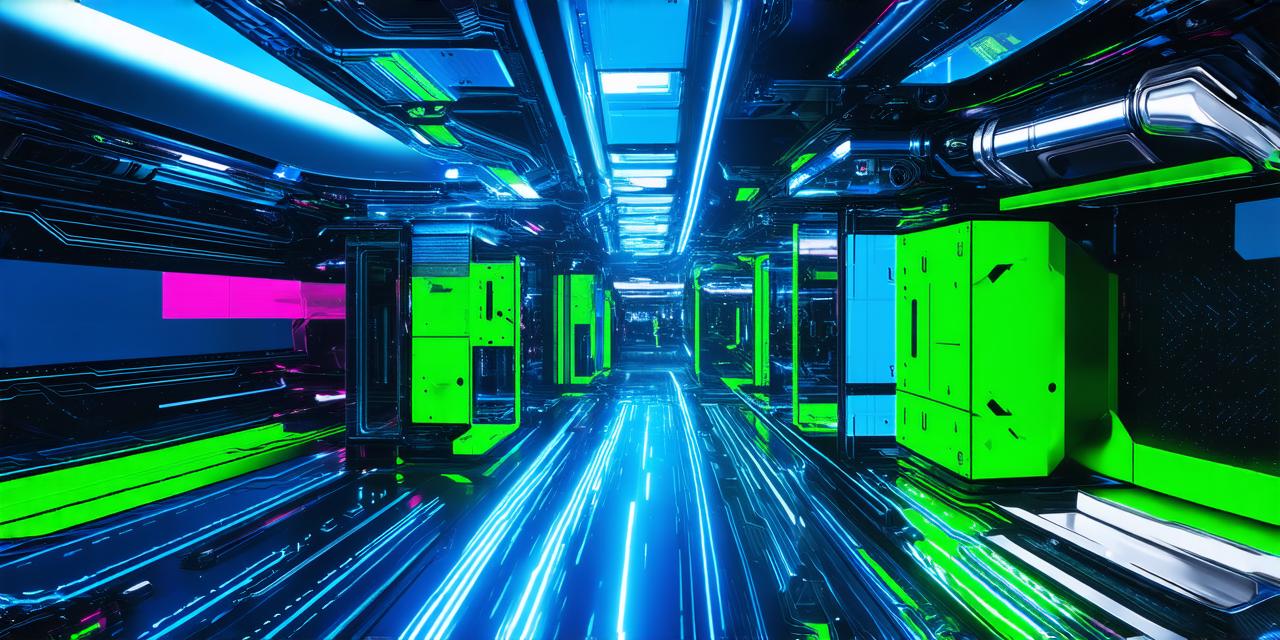Future of Virtual Reality: Technological Advancements
One of the key factors that will shape the future of VR is technological advancement. As hardware and software become more powerful, we can expect to see even more immersive and realistic virtual environments. Some potential developments in VR technology include:
- Haptic feedback: The ability to feel physical sensations in virtual reality could greatly enhance the overall experience. For example, if a user is wearing a haptic suit, they may be able to feel the weight of an object or the texture of a surface.
- Eye-tracking: By tracking eye movements, VR systems can adjust the visual field to match the user’s gaze, creating a more natural and immersive experience.
- Wireless VR: As technology advances, we may see wireless VR systems that are more convenient and accessible for users.
Future of Virtual Reality: Applications in Entertainment
One of the most popular applications of VR is entertainment. In the future, we can expect to see even more innovative ways for people to experience movies, games, and other forms of media in virtual reality. Some potential applications include:
- Interactive movies: Users could be able to explore different paths through a story, making their own choices and experiencing different outcomes based on those choices.
- Immersive gaming: VR gaming could become even more immersive, with users feeling like they are truly part of the game world.
- Virtual concerts: Musicians could perform live in virtual reality, allowing fans to experience the concert as if they were there in person.
Future of Virtual Reality: Applications in Education and Training
Another area where VR has great potential is education and training. In the future, we can expect to see even more use of VR for these purposes. Some potential applications include:
- Virtual field trips: Students could take virtual field trips to different parts of the world or to historical sites that are otherwise inaccessible.
- Medical training: VR systems could be used to simulate surgical procedures and other medical scenarios, allowing doctors and nurses to practice their skills in a safe environment.
- Military training: VR systems could be used to simulate military operations, allowing soldiers to train for real-life situations in a controlled environment.

Future of Virtual Reality: Impact on Society and Culture
As VR technology continues to advance and become more accessible, we can expect it to have a significant impact on society and culture. Some potential effects include:
- Increased social connection: While VR is often used as a way for people to escape from reality, it could also be used to connect people with others around the world who share similar interests.
- New forms of art and entertainment: As VR technology continues to evolve, we may see new forms of art and entertainment emerge that are specifically designed for this medium.
- Changes in the workplace: VR technology could lead to new ways of working, such as virtual meetings and remote work environments.
Conclusion
In conclusion, the future of virtual reality is likely to be shaped by technological advancements and new applications in entertainment, education, and training. As this technology continues to grow and improve, we can expect it to have a significant impact on our society and culture. Whether you’re an enthusiast or a skeptic, there’s no denying that virtual reality is an exciting and rapidly evolving field with limitless potential.
